1. Amaralingeswara Temple

Amareswara Temple, located in Amaravathi, is devoted to Lord Shiva, the 'Destroyer of the Universe'. The holy place embraces a 15-foot-high marble Shiv Ling. It is believed that Lord Shiva is present in the structure of five lingams: Pranaveswara, Agasteswara, Kosaleswara, Someswara, and Parthiveswara.
2. Amaravati Museum
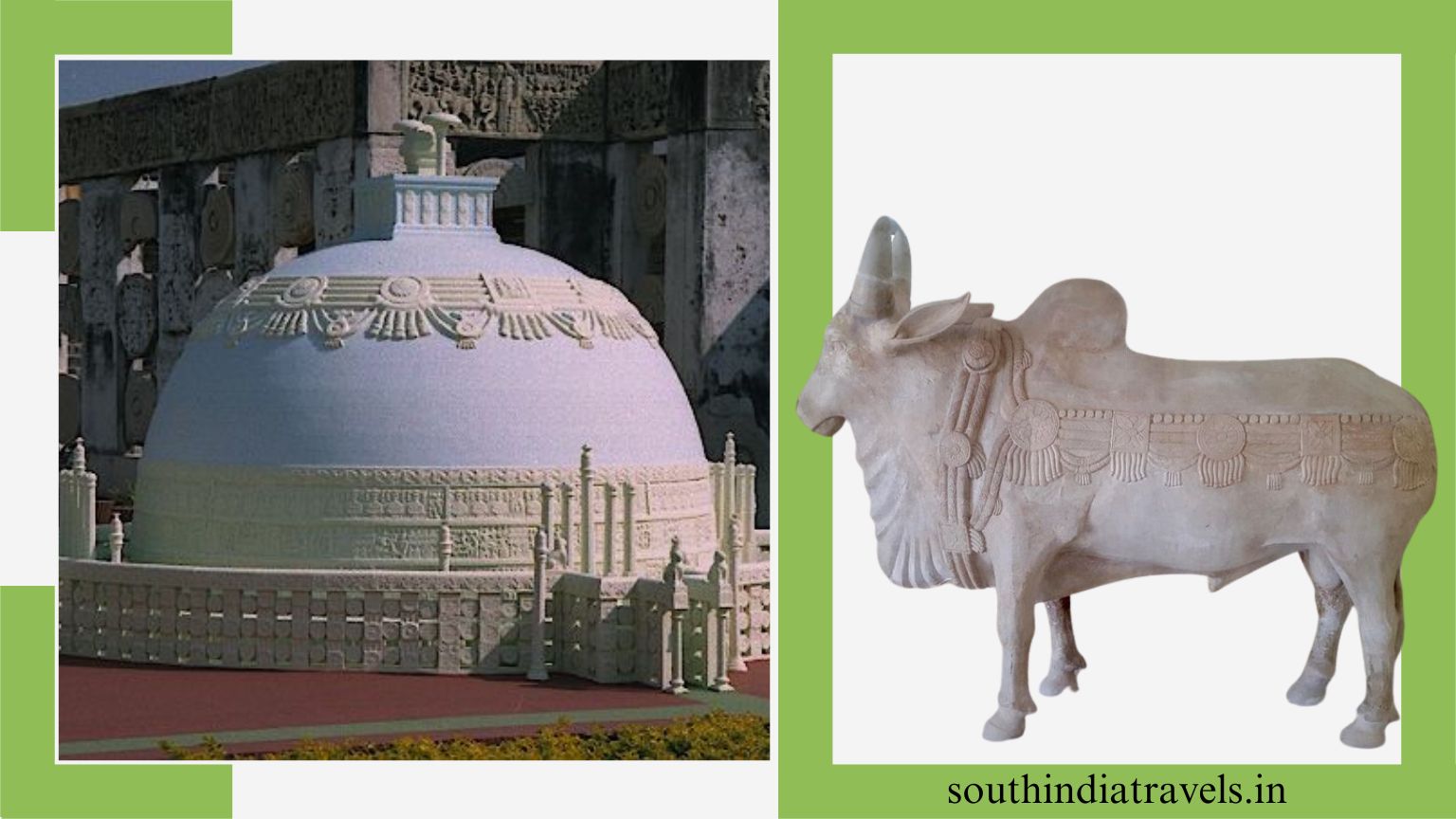
Maintained by ASI, the Amaravati Museum is an amazing repository of relics that have been gathered from the ruins of this 2000-year-old Buddhist settlement as well as from nearby places. These artefacts belong to the period from the 3rd century BC to the 12th century AD and are exhibit in three different galleries. The ancient and complex art work done by the craftsmen of that period is displayed in the first gallery. The Purnakumbha designs and the Lotus designs here express the intricate art of those days. The two drums of slab depicting the stupas, the Swastika mark on the cushioned seat of the throne under the Bodhi tree, the Agni Skanda (flaming pillar), the dome, and the standing Buddha belonging to the 8th century are the precious collections of this museum.
The second gallery has a tall and elegant bronze statue of Lord Buddha, the master piece of the Amaravati Museum. This elegant Buddha statue probably belongs to the 8th century AD and was excavated from the south-eastern part of the Deccan. The sculptural dexterity revealed in the statue is commendable. This gallery also has some inscribed pillars, a stone wheel from Lingarajapalli, and many portraits and paintings that will give you an insight into the life of Buddha. While the third gallery depicts the strength and energy of the Satavahana period, here you will come across sculptures dating back to 100 BC, such as Yakshi, Dharma Chakra, and Bodhisattvas.
3. Dhyana Buddha Statue

The Dhyana Buddha Statue is a gigantic statue of Lord Buddha in Amaravati, Andhra Pradesh. Known to be among the tallest Buddha statues in India, with a towering height of 125 feet, the Dhyana Buddha Statue was commissioned in 2003 and completed in 2015. The status quo sits facing the pristine River Krishna and sprawls over a humongous green space covering 4.5 acres of land.
4. Amaravati Stupa or Mahachaitya
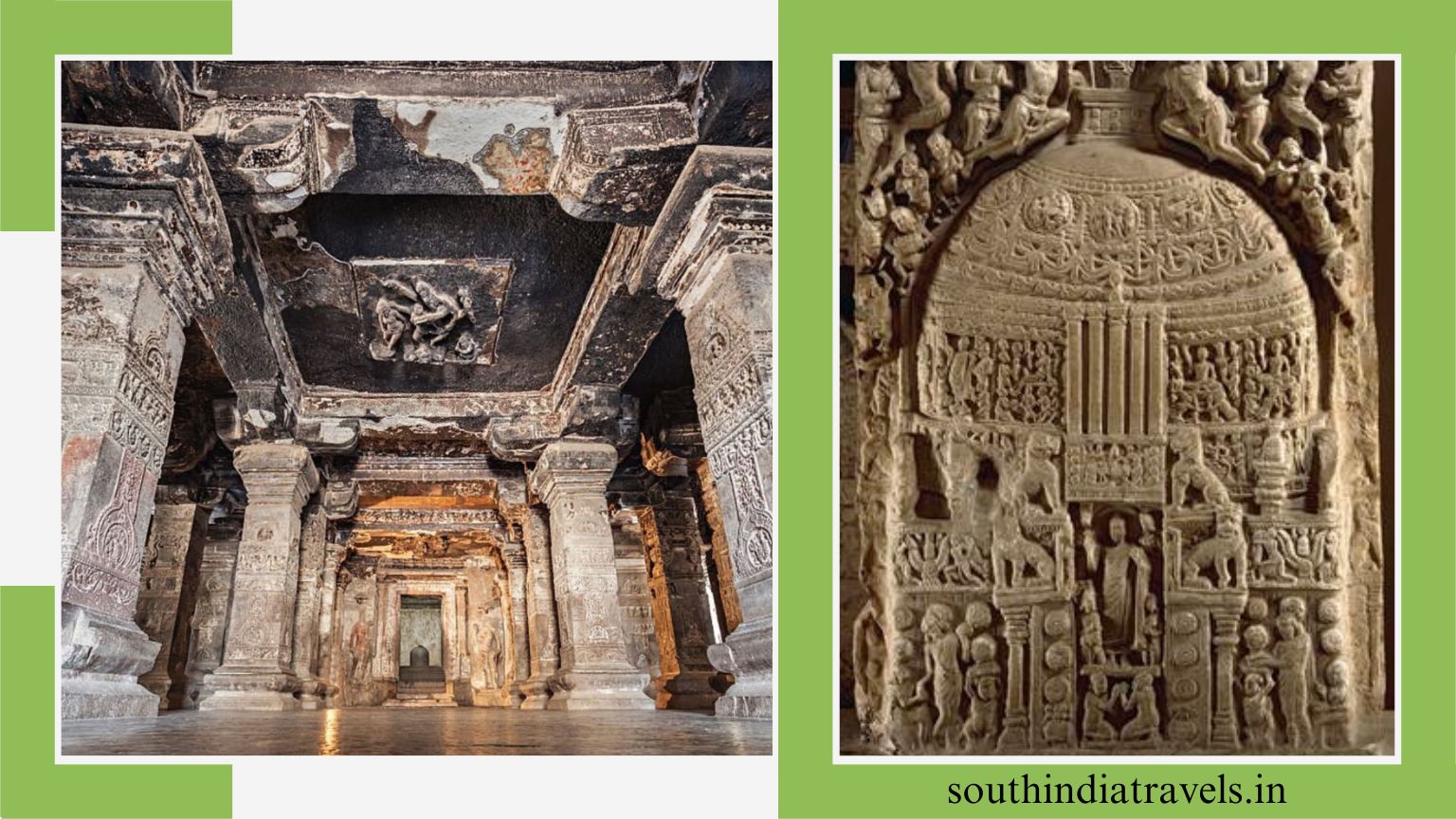
The great Buddhist stupa, or Mahachaitya of Amaravati, is one of the greatest architectural achievements of ancient India. It was founded in the 3rd–2nd centuries BC during Ashoka Maurya's reign and enlarged in the 1st–4th centuries AD under the Satavahana and Ikshvaku patronages. It was a center of religious activities until the 14th century AD. Eventually, it fell into disuse and was rendered invisible by being covered in dust and debris over the course of time.
Also known as Deepaladinne, the great stupa at Amaravati was one of the biggest in Andhra Pradesh, with a probable diameter of 50 m and a height of 27 m. It has a brick-built circular vedika, or drum, with projecting rectangular Ayaka platforms in four cardinal directions. Five Ayaka pillars must have stood on each platform, symbolically representing the five main events in Buddha's life, viz., the birth, the great renunciation, the enlightenment, the first sermon, and the final extinction. The drum and Ayaka platforms were covered with sculptured slabs. All four Ayaka platforms have yielded seven crystal and one ivory relic casket, some of which contain bone pieces, pearls, precious stones, and gold flowers. This is a Sariraka type of stupa, and hence it has great importance.
5. Managalagiri Temple
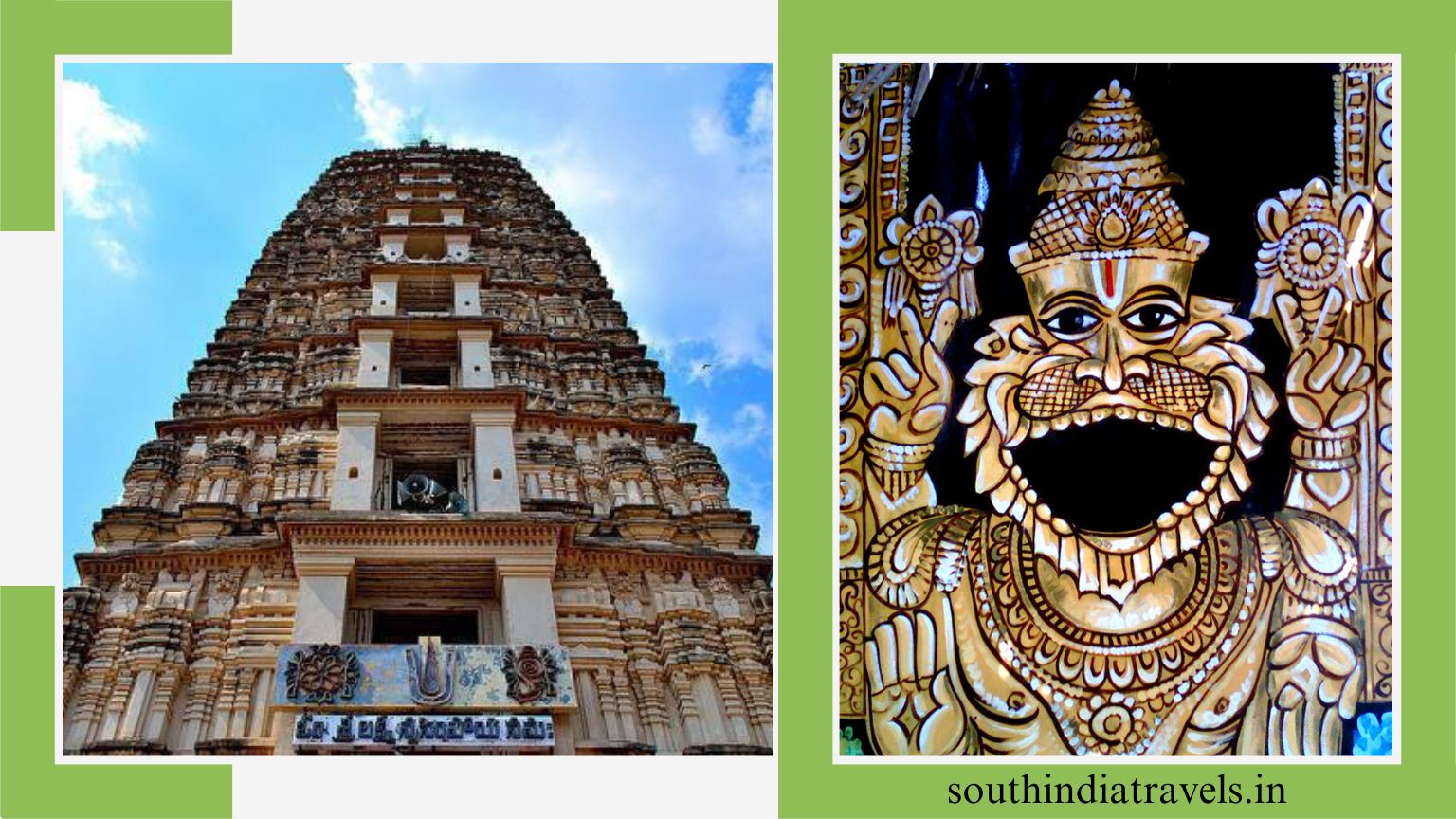
Temples like Panakala Swami and Lakshmi Naramisha are located at the foot of the Auspicious Hill. The town has three Narasimha Swami temples, located at a distance of 38 km from Amaravati, which have attracted lots of tourists time and again.
6. Undavalli Caves
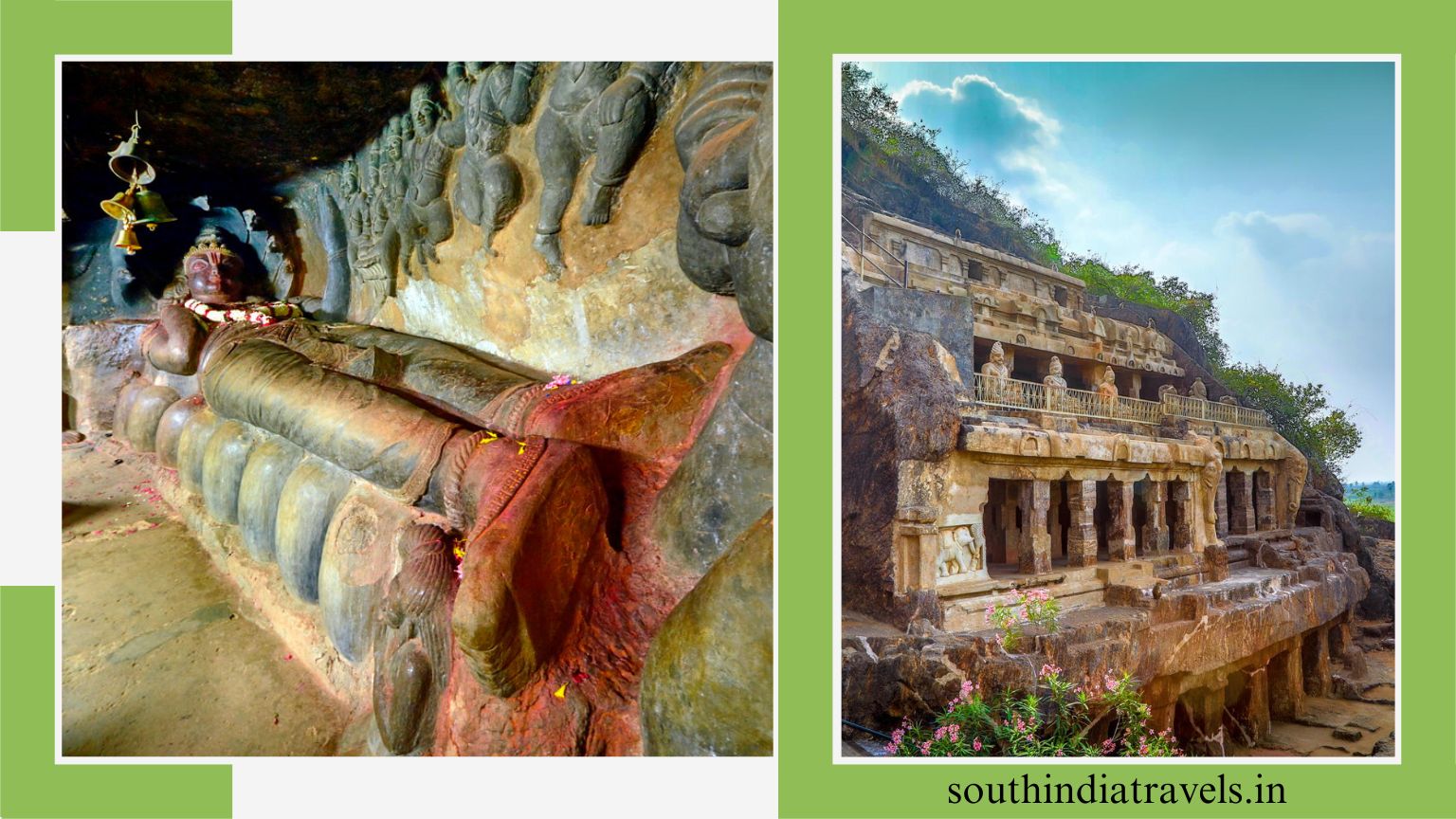
Solid sandstone rock-cut caves, located in Undavalli, 22 km northeast of Guntur City on a hillside, include a huge, recreated statue of Vishnu in a highly reclining posture.
7. Bhattiprolu
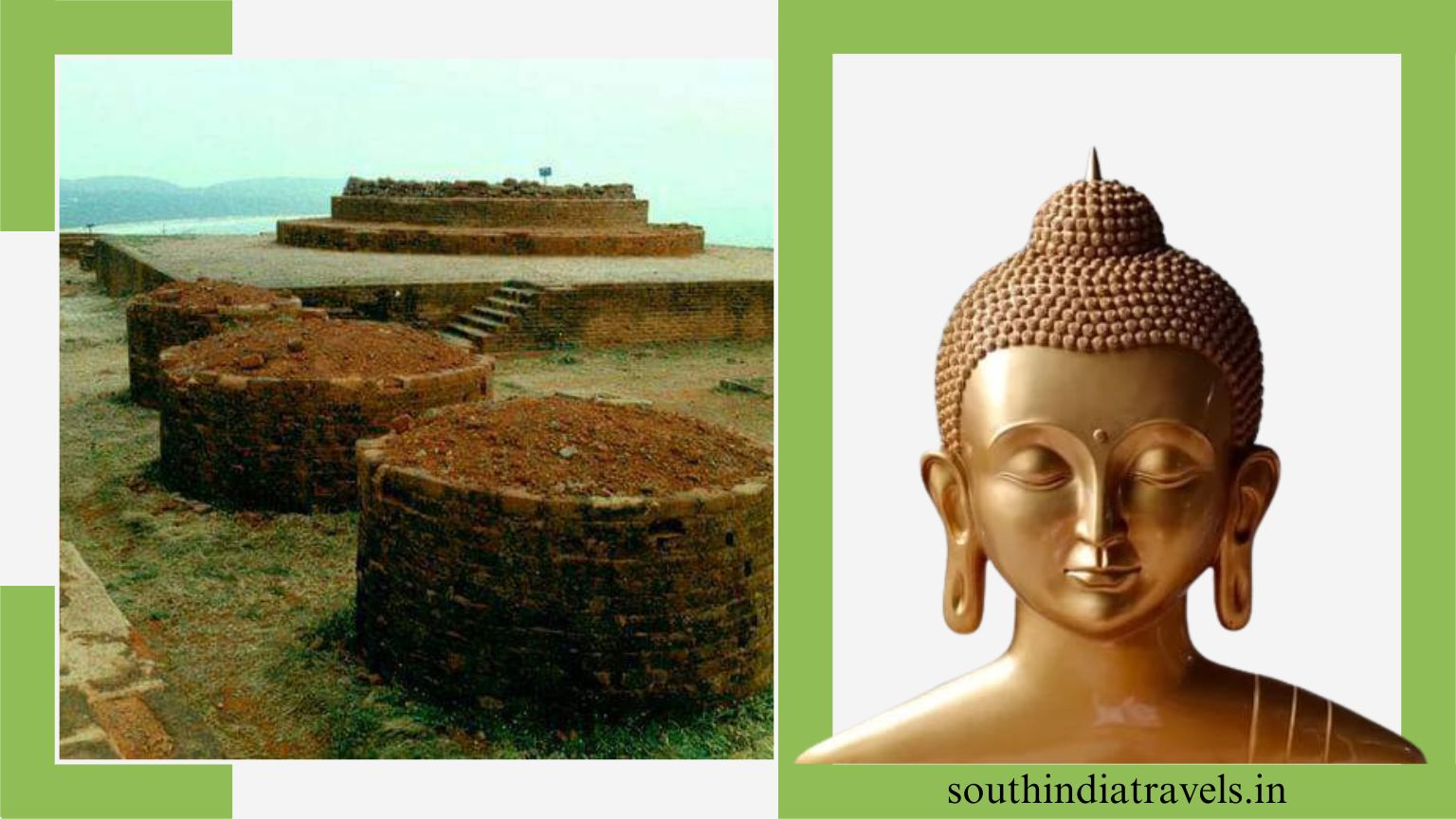
A Buddhist town renowned for its big Buddha stupa showcases the earliest evidence of Brahmi script that was prevalent in South India.
8. Kondaveedu Fort
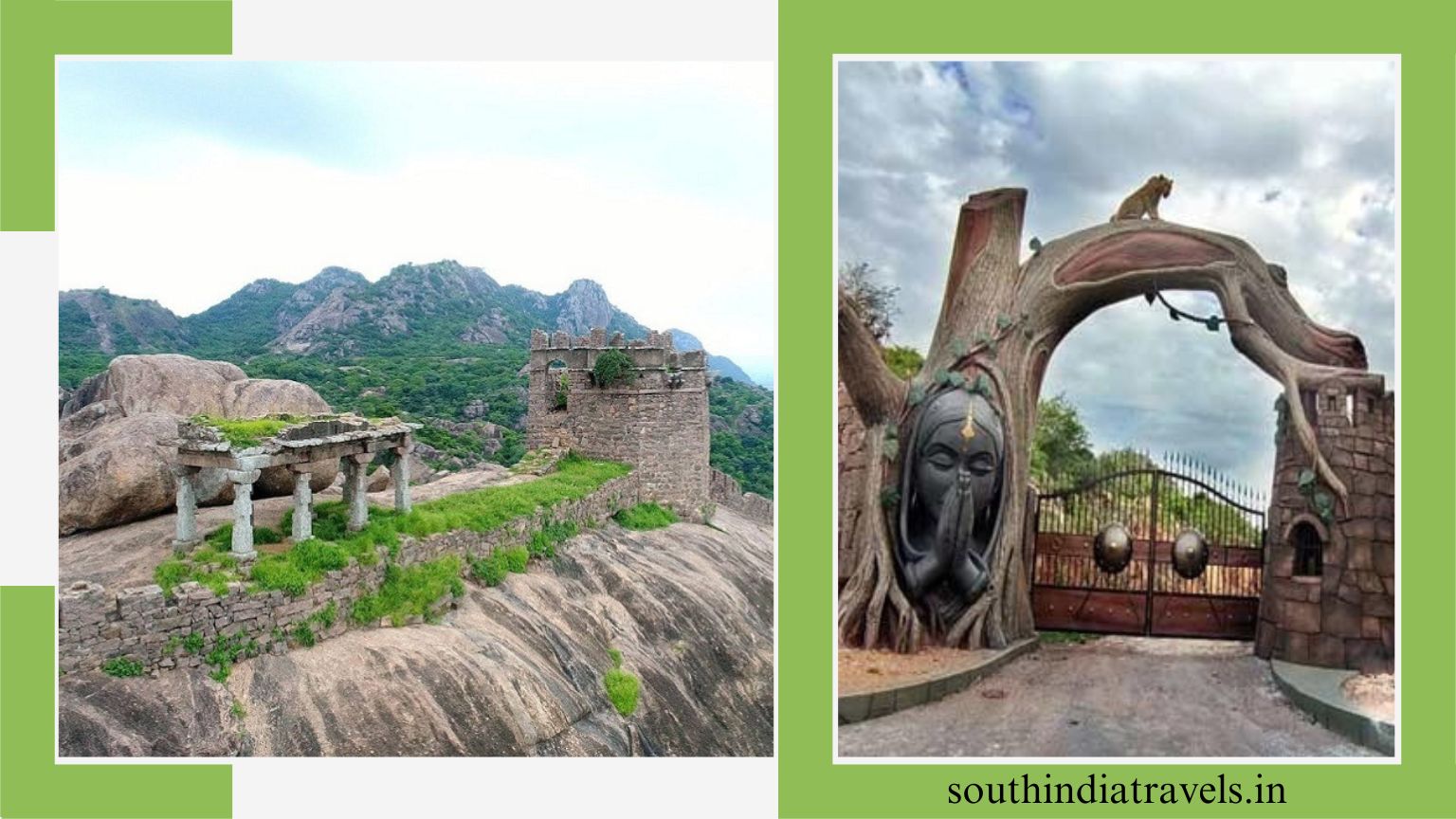
A hill fortress and proposed world heritage site located within the heart of Kondaveedu village. This fort is being renovated by the Andhra Pradesh Department of Archaeology and Museum to emerge as a hot favourite amongst its tourists.
9. The Krishna River

It is the fourth-biggest river in India and a significant source of irrigation in Telangana. Tourism being a significant industry here, Amaravati Tourism has plans to construct a floating hotel, boating, and a replacement barrage on the River Krishna.
